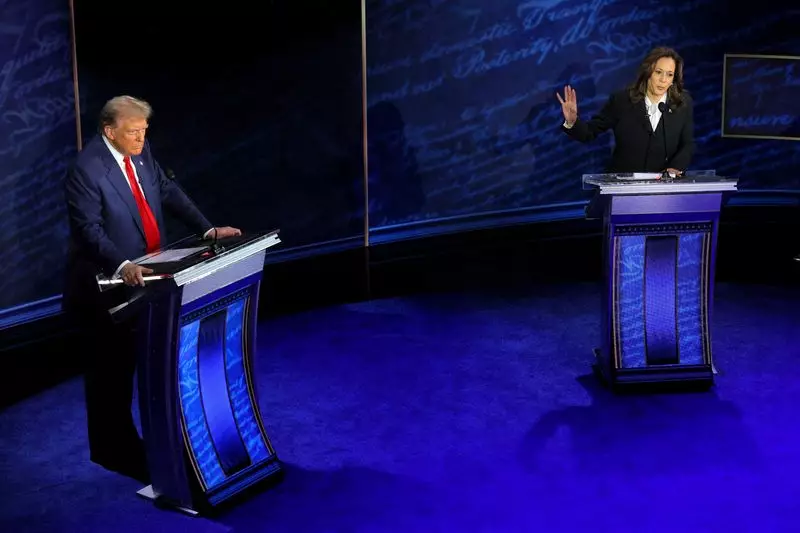As the political landscape of the United States shifts, a significant number of corporate financial officers are feeling the impact, particularly in relation to upcoming elections. This sentiment of uncertainty can lead to cautious financial behavior among companies, ultimately affecting economic growth. With the November 5th Presidential election on the horizon, a recent survey has illuminated how the trepidation surrounding political volatility is shaping corporate investment strategies.
A survey conducted by the Atlanta and Richmond Federal Reserve Banks in collaboration with Duke University’s Fuqua School of Business reveals that approximately one-third of CFOs are changing their investment plans due to the uncertainty engendered by the upcoming elections. Specifically, around 21% of the surveyed CFOs reported postponing investments, while an additional 15% opted to scale back their plans. Together, this encompasses a significant 30% of respondents who indicated some form of impacted investment decision relating to election uncertainty.
Interestingly, while nearly a third of CFOs cited election-related hesitancy, over 64% reported no impact on their investment approaches. This divide highlights a lack of uniformity in corporate responses to political events, suggesting that some firms might possess a greater resilience against external uncertainties than others.
Those companies most apprehensive about the election were generally less optimistic about the economic outlook and were more inclined to reduce their investment for purposes primarily focused on cost control, rather than expansion. Insights from Atlanta Fed economist Brent Meyer and survey director Daniel Weitz point to a concerning downstream effect from this cautious approach. Firms unsettled by the political climate exhibited a tendency to forgo capacity-building investments, choosing instead to invest in equipment and structural modifications with the aim of cutting programmatic costs.
Such trends could have immediate repercussions for economic growth. Companies that refrained from expansion related activities may also impair their potential to capitalize on growth opportunities that arise post-election, with the survey indicating that these firms did not expect to compensate for any growth loss in 2025.
Despite pervasive concerns regarding the political climate, CFOs expressed a cautiously optimistic outlook overall. Notably, 69% of respondents conveyed a bullish sentiment regarding their own companies and about 60% expressed optimism about the broader U.S. economy. This relative positivity remained unchanged from the preceding quarter, indicating resilience in corporate confidence despite the mounting political pressures.
However, it is critical to analyze the increasing influence of political decisions on corporate mood. The findings reveal that while many CFOs may feel optimistic about their individual firm’s prospects, the combative nature of the political environment may inhibit widespread investment strategies across various sectors.
Notably, the survey also identified key areas of concern for CFOs ahead of the elections. Regulatory policy emerged as a central worry for approximately 60% of respondents, indicative of a landscape replete with complexities amidst shifting rules and guidelines. Monetary policy, which has frequently topped the worry list for over a year, follows closely behind as nearly 59% of CFOs identified it as a pressing issue—especially in light of the Federal Reserve’s attempts to balance interest rates to mitigate inflation.
The shift of attention away from inflation as a priority—only 8% of CFOs view it as a primary concern—demonstrates a changing focus perhaps reflective of broader economic indicators. As businesses prioritize understanding the implications of regulatory and monetary policy over inflation itself, corporate strategies may increasingly align with predictions around these issues.
As the U.S. navigates through a politically charged atmosphere, corporate investment behaviors reflect a broader apprehension that could have significant ramifications for economic growth. While some companies showcase a foundational optimism concerning their financial trajectories, the pervasive uncertainty linked with the upcoming elections serves as a pivotal factor influencing investment decisions. Understanding these dynamics will be vital for stakeholders looking to navigate the financially turbulent waters leading up to and beyond the November elections.

